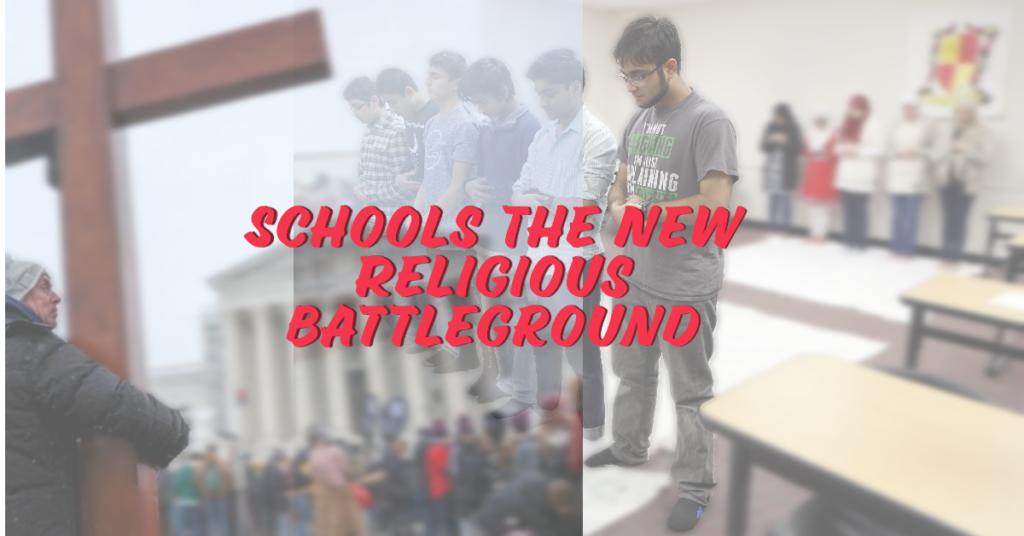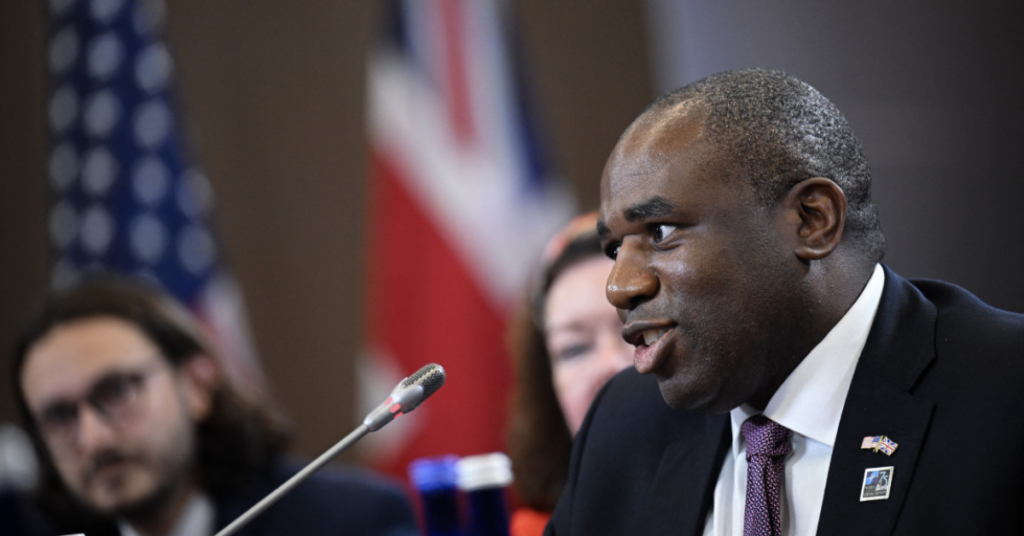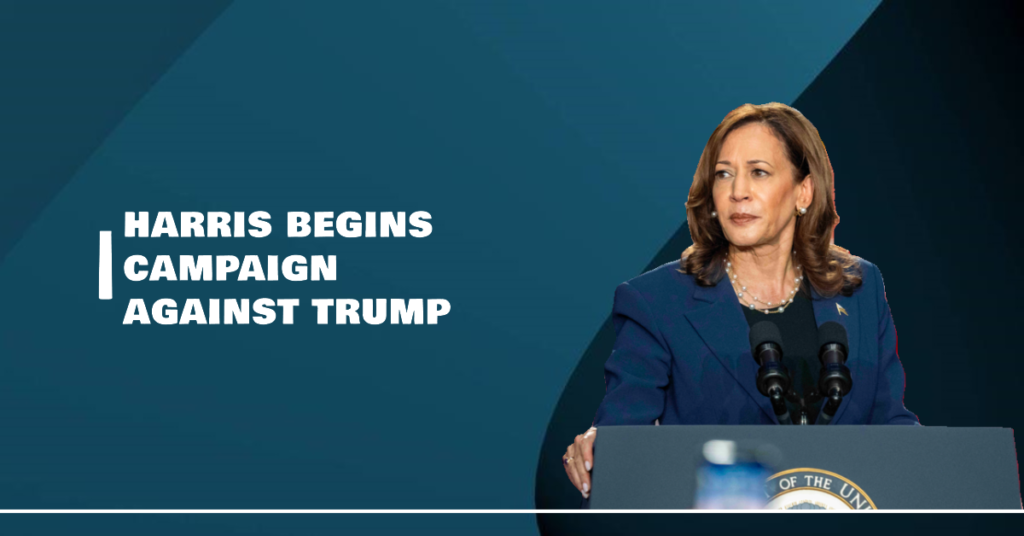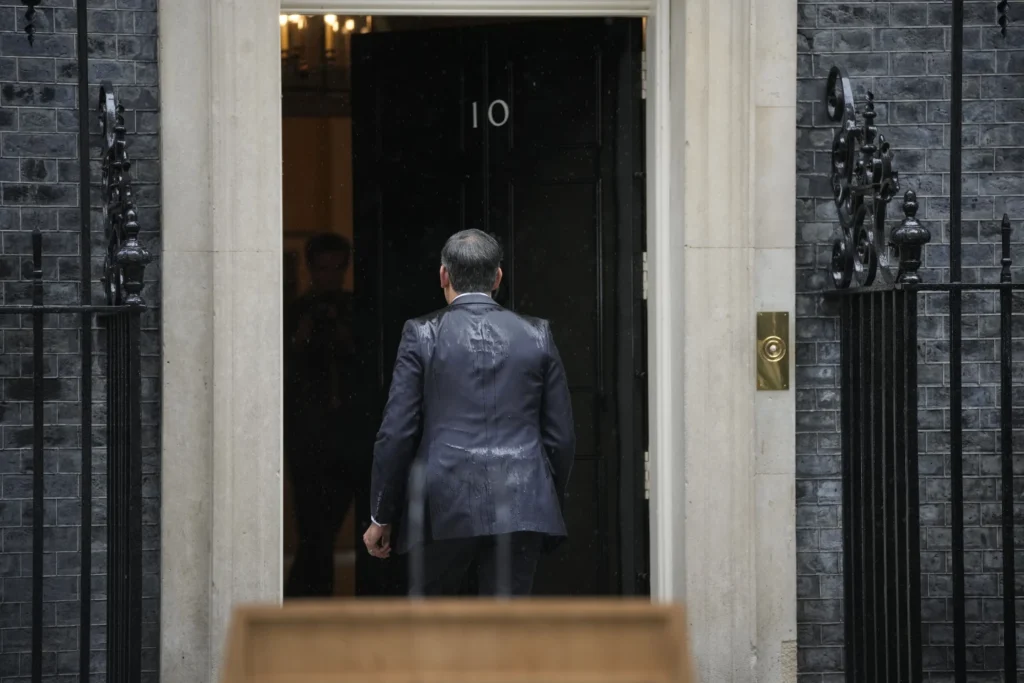
Why eShopy.in is India’s Go-To Destination for Original Electronic Gadgets
In today’s digital-first world, the demand for authentic, high-quality electronic gadgets is at an all-time high. Whether you’re a college student looking for budget tech
Today's Headlines and Tomorrow's Discounts

Recent legislative actions in Republican-governed states like Louisiana and Oklahoma have introduced religious elements into public school curricula, challenging the Constitution’s “establishment clause” and sparking nationwide debate. Louisiana now requires public schools to display the Ten Commandments, while Oklahoma mandates Bible teachings, leading to legal challenges and opposition from various school districts. These actions are part of a broader movement fueled by conservative opposition to liberal curricula and supported by a more conservative Supreme Court, which has shown willingness to reconsider limits on religious expression in public education. The debate highlights the complex intersection of religion and public education in the United States.

In a foundational democratic principle taught in every basic U.S. history course, the Constitution bars the government from endorsing an official religion or favoring one over others. However, recent actions by Republican-governed states, such as Louisiana and Oklahoma, challenge this principle by introducing religious elements into public school curricula. These moves have sparked a nationwide debate on the separation of church and state, turning religion in public schools into a new religious battleground.
Two Republican-governed states, Louisiana and Oklahoma, have introduced measures that challenge the Constitution’s “establishment clause.” Louisiana now requires public schools to display the biblical Ten Commandments, while Oklahoma mandates that public schools teach the Bible. These actions aim to bring religious principles into the public education system, which courts have long interpreted as separating church and state.
According to Americans United for Separation of Church and State, lawmakers in 29 states have proposed at least 91 bills promoting religion in public schools this year. This movement is driven by conservative opposition to liberal curricula, including diversity and LGBT rights, and the U.S. Supreme Court’s willingness to overturn precedent, moving American law rightward.
Republican Louisiana Attorney General Liz Murrill, whose office is defending the Ten Commandments law in court, explained that legislators, frustrated by a lack of discipline in schools, turned to biblical precepts to “start a conversation about order.” Governor Jeff Landry suggested that non-religious parents could simply tell their children not to look at the Ten Commandments posters, a response that has not quelled opposition.
In Oklahoma, schools are now directed to teach from the Bible, focusing on its historical context in Western society and American history, its literary significance, and its influence on the arts and music. Several school districts have refused to alter their curriculums to accommodate this policy change, highlighting the contentious nature of these mandates.
The National Association of Christian Lawmakers (NACL), founded in 2020, has coordinated legislative efforts across different states. The NACL has produced model bills, including one on the Ten Commandments and another requiring schools to display “In God We Trust” signs. The influence of these model bills is evident in the actions taken by states like Louisiana and Oklahoma.
Texas could be the next major battleground, having passed a law allowing public schools to hire chaplains as counselors. The Texas board of education will decide in November whether to approve a new elementary school curriculum that includes Bible teachings. Texas lawmakers are also expected to revive bills requiring the display of the Ten Commandments in schools and allowing publicly funded vouchers for private religious school tuition.
The Supreme Court, with a 6-3 conservative majority, has taken an expansive view of religious rights in recent years. In 2022, the court ruled that a Washington state public school district violated the constitutional rights of a Christian high school football coach who was suspended for refusing to stop leading prayers with players on the field after games. This ruling abandoned a 1971 precedent and galvanized conservative Christians.
The court has also made it easier for religious schools and churches to receive public money and has supported religious exemptions for family-owned corporations and businesses. These decisions reflect a broader shift toward accommodating religious expression in public life.
The introduction of religious elements into public school curricula by Republican-governed states has turned public schools into a new religious battleground. With a conservative Supreme Court willing to reconsider longstanding limits on religious expression, the debate over the separation of church and state in public education is far from over. As legal challenges make their way through the courts, the nation will continue to grapple with the complex intersection of religion and public education.

In today’s digital-first world, the demand for authentic, high-quality electronic gadgets is at an all-time high. Whether you’re a college student looking for budget tech

Eshopy.in eShopy.in – Your One-Stop Destination for Authentic Electronic Gadgets In today’s digital era, having access to the latest and most reliable electronic gadgets is

How US Public Schools Became a New Religious Battleground Recent legislative actions in Republican-governed states like Louisiana and Oklahoma have introduced religious elements into public

PM Modi Reacts to Vinesh Phogat’s Olympics Disqualification PM Modi Consoles Vinesh Phogat: ‘You Are a Champion Among Champions’ After Olympics Disqualification Vinesh Phogat’s Olympics

The Economic Landscape: Biden, Harris, and Trump The two candidates are worlds away when it comes to taxes, deregulation and DEI. But in other key

UK Calls for UN Investigation into Bangladesh Turmoil, Avoids Mention of Sheikh Hasina Asylum UK Foreign Secretary David Lammy stated that his government hopes for

JBL, Harman Kardon, Bose, Benq, Qubo Distributor in Delhi Delhi, a bustling metropolis and the heart of India, is not just a cultural hub but

Mismanaged Delhi: All Because of AAP? Delhi, once known for its vibrant culture and bustling streets, is now grappling with severe mismanagement issues. Arvind Kejriwal,

belkin Wireless MagSafe Charging for Apple iPhones The rapid development of mobile technology has transformed how we interact with our devices. In a world that

The Greatest of All Time – Trailer, Cast, Release Date & More The Greatest of All Time The trailer for “The Greatest of All Time”

Prime Minister Modi Anticipated to Visit Kyiv in August for First Time Since Russia-Ukraine Conflict Began : Reports Modi Plans First Visit to Ukraine Since

Discover the Best Car and Bike Insurance Deals with ACKO When it comes to insuring your car or bike, finding a reliable and affordable provider

Must-Read: Haryana Assembly Elections 2024 – Key Dates, Top Candidates, and Insider Info Here’s everything you need to know about the upcoming 15th Haryana Legislative

Harris Launches Campaign Against Trump, Emphasizing Law and Order Kamala Harris kicked off her presidential campaign with a speech highlighting the contrast between her experience

Stree 2 (Aug 2024) – Trailer, Cast, Release Date & More Stree 2 (2024) The much-anticipated sequel to the 2018 hit film “Stree” is finally

Joe Biden Steps Down from Presidential Race, Endorses Kamala Harris Joe Biden announced that he will continue to serve as President until his term concludes

Discover BadCreditLoans.com: Your Gateway to Financial Relief Discover Badcreditloans.com If you’re struggling with bad credit and need financial assistance, BadCreditLoans.com could be the solution you’re

India Names Suryakumar Yadav as T20I Captain for Sri Lanka Tour India will visit Sri Lanka in July-August for a white-ball tour featuring three T20Is

IIFM 2024: Ram Charan to Receive Prestigious ‘Ambassador for Indian Art & Culture’ Title This achievement underscores Ram Charan’s profound influence on Indian cinema and

Joe Biden vs. Donald Trump: Election Campaign Comparison Joe Biden vs. Donald Trump The 2020 Presidential Election in the United States was one of the most

Get ready to revamp your wardrobe with Myntra’s exciting Super Saver Sale, running from July 13 to 21. This incredible sale brings you unbeatable discounts

Who is Radhika Merchant ? Born: 18 December 1994 , Mumbai Parents: Viren Merchant, Shaila Viren Merchant Spouse: Anant Ambani (2024) Radhika Anant Merchant is an Indian businesswoman, dancer, media

Advantages and Disadvantages of Owning Multiple Credit Cards Having multiple credit cards can be beneficial, especially if you maintain financial discipline and use them responsibly. Pros and

Finding the perfect headphones can be a daunting task, especially with so many options available across various price ranges. Whether you’re a casual listener or

MILLY is a Mid-Range Luxury Fashion known for crafting exquisite clothing for women and girls. Combining sophisticated design with high-quality materials, MILLY offers a unique

Rishi Sunak’s UK election campaign revealed his political disconnect In the run-up to the UK election, Rishi Sunak’s campaign underscored a noticeable gap between his

Keir Starmer is The New Prime Minister of UK Keir Starmer, leader of the Labour Party, has been elected as the new Prime Minister of

Get ready for the hottest deals of the year! The Amazon Prime Day Sale is coming on July 20-21, and it’s packed with amazing offers

Bad Newz (July 2024) – Trailer, Cast, Release Date & More Bad Newz “Bad Newz,” an eagerly anticipated comedy-drama, is set to hit theaters on

Discover the JBL Live Beam 3 TWS (Earbuds): Hi-Res Audio, True ANC, Smart Touch Display Case JBL LIVE BEAM 3 JBL By HARMAN JBL stands
